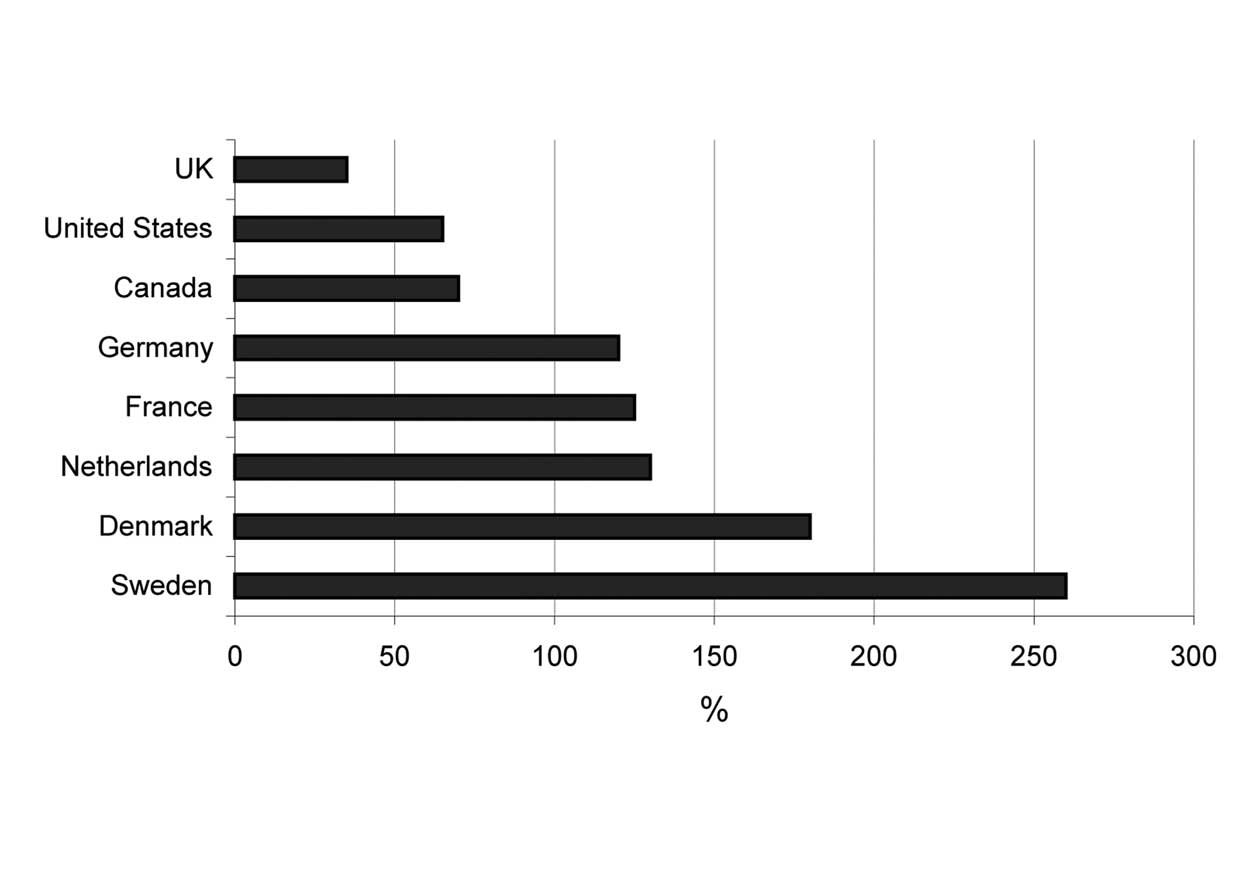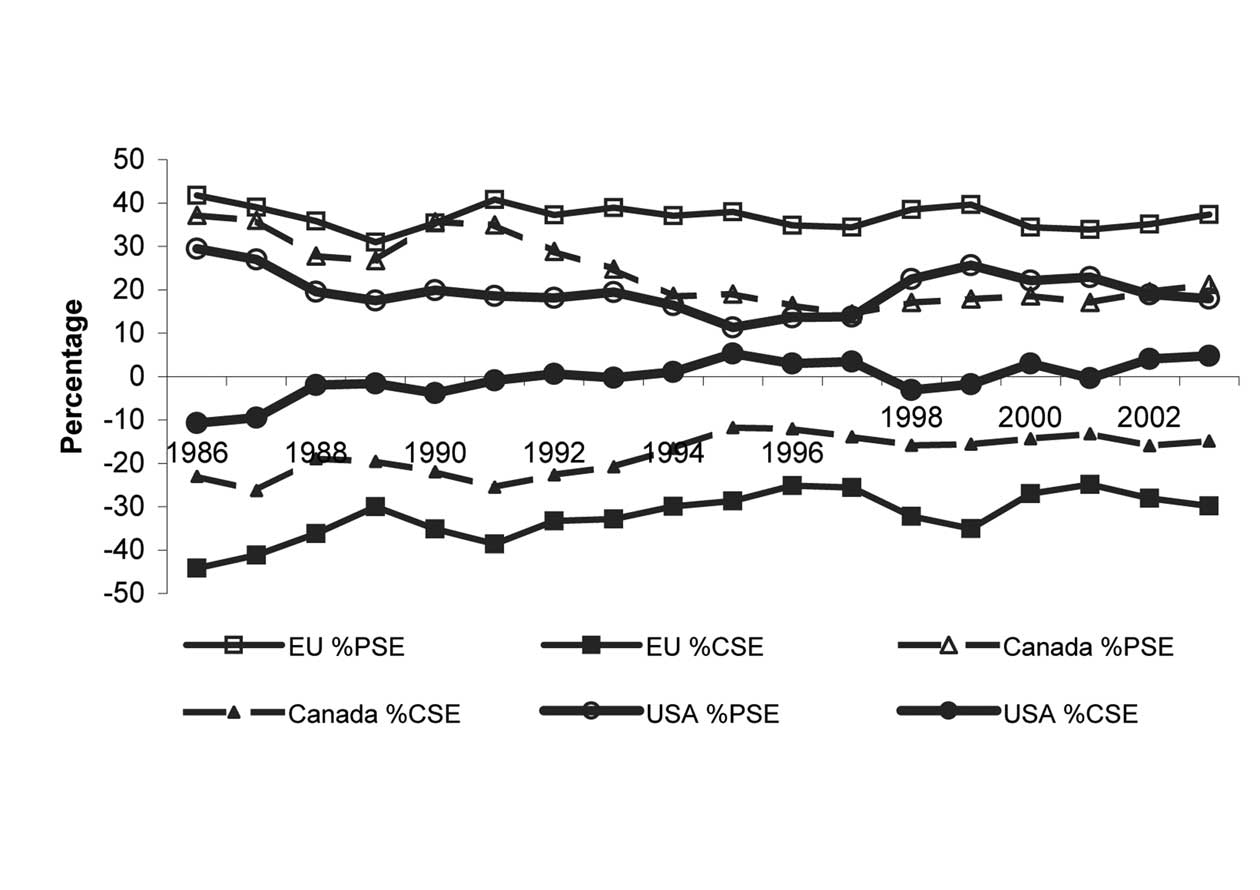Figure 3-9. Turnover of farmer-controlled businesses as percentage of agricultural output.
Source: English Food and Farming Partnership, 2006
Instead of working on farms, former farm workers may commute to towns. Where the urban economy is buoyant, city dwellers may move into villages, raising the price of village houses and creating new and different communities. In this type of situation impacts measured in average data tend to show these communities as relatively affluent, although they contain many poorer people who once depended on farming for their incomes.
3.2.7 Impacts on trade of changes in production driven by AKST
Fluctuation in farm incomes at times presented a major problem for most NAE governments. Powerful farm lobby groups demanded support for farm incomes. In response, policies provided subsidies that prevented declines in farmer income despite excess levels of production resulting from greater productivity. In effect, the EU and the USA subsidized farmers, limited imports and subsidized exports (Figure 3-10).
Dramatic changes in the level of support took place after the break up of the Soviet Union (Figure 3-11). From the |
|
mid-1990s support had declined to levels below those of most other developed countries.
Producers in other countries faced depressed prices and in some cases total loss of markets at least in part as a result of subsidies in NAE. This has become the major issue in international trade negotiations. Its impact extended far beyond agricultural trade itself because countries refused to make progress on trading issues without an agreement on agriculture. The debate included the level of domestic subsidies, the demand to remove export subsidies and to reduce all sorts of barriers to market access. In return for progress in these areas the NAE countries sought tariff reductions on manufactured goods; trade in services and agreements relating to intellectual property (WTO, 2005).
Agricultural issues remain critical in the current Doha round of trade negotiations. The Secretary General reported on 18 December 2005 that, after protracted negotiations, significant progress had been made on agriculture including an agreement to end export subsidies by 2013.
However, he announced the suspension of those negotiations seven months later because of lack of progress. At |
Figure 3-10. Producer and Consumer Support Estimates (PSE & CSE) as measures of support
for agriculture. Source: OECD, 2004


